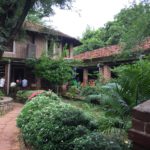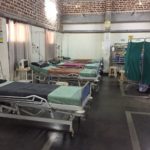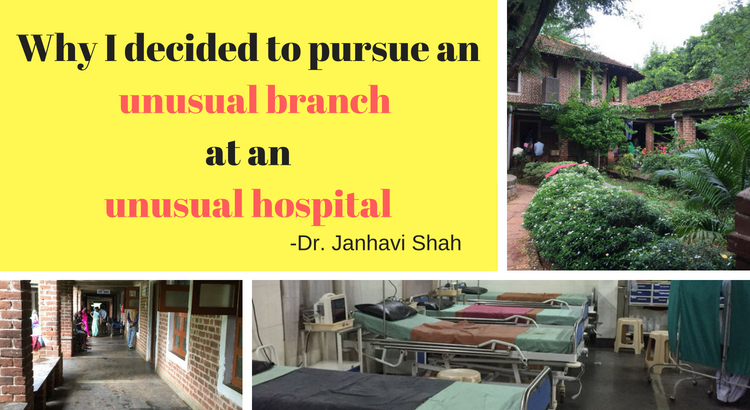Dr. Janhavi Shah is a Second Year Family Medicine Resident at Jan Swasthya Sahyog (JSS), Ganiyari. In this article, she shares with us why she decided to pursue family medicine that too at an unusual hospital in Chhattisgarh. She talks about family medicine in India, the pros, and cons as well as the scope of family medicine in India.
“Chhattisgarh? Dude, Naxalites live there!!”
“Family Medicine! But you’re so smart! You should do ObGyn!”
“But ghar se itna door why you want to go? Opt for a hospital in Mumbai only na.”
“Repeat na. Agle saal kuch better mil jayega”
2 years ago whilst in my internship, I decided to do Family Medicine. A year ago I decided I wanted to do Family Medicine at JSS. I looked up Chhattisgarh on the map, Aaaah-ed at the location staring at me, and told everyone back home what I wanted to do. Half of my family was thrilled and the other half wasn’t.
Family Medicine isn’t a glamorous urban branch! So I get it when people are apprehensive or have concerns.My father is a general practitioner and without realizing it, I fell in love with general practice before I fell in love with Medicine.
I stumbled upon the existence of JSS whilst skimming through an online blog. Then I stalked the website and then the founders. All these years of stalking crushes and their ex-girlfriends and their bua ke dost ka beta with Avanti and Jo (my friends from undergrad at BJ Medical College, Pune) finally paid off!

The hospital seemed like a happy place for the sick, the founders couldn’t have better credentials. Best of all, the administration was super supportive and non-toxic and all departments helped each other with a common aim of healing the sick.
I’ve been here for over a year now and the consultants, senior residents, and even my co-residents are the nicest people ever. I haven’t come across a more skilled set of nurses. The locals here are simple grounded people.
It feels like a eutopic hospital in a dystopic world.
Family Medicine is a combination of all clinical branches and aims at addressing the most common health care needs of the community.
The doctor ideally knows about the entire family’s health status and refers them to another specialist as and when required. This requirement predominantly (and inversely) depends on the expertise of the physician.
For example, Dr. X has insufficient experience dealing with a migraine and would refer to a neurologist for the same; alternatively, Dr. Y is confident and competent to manage the patient at the primary level.
The advantage is the patient convenience, a reduced burden on the specialists and health care costs (especially in public health systems).
From the rural perspective, where the doctor-patient ratios are abysmal, FamMed is the Batman that Gotham needed. In cities, where specialists are easily available, FamMeds may have to make their space.
The upper hand here is that you are the entire Family’s doctor and you don’t burn a hole in anyone’s pockets.
Given the diversity and vastness of the field, it is extremely important that one chooses a good programme for residency.
Choose a hospital which gives enough exposure in all clinical fields. Avoid hospitals where you’d be fillers used for doing most of the paperwork or as floor RMOs in 7-star hospitals. Not the best place to learn!
3 years of residency is the base for the rest of your life; keep it strong. Small locational sacrifices may go a long way in the future.
Currently, there are no super specialty courses designed for FamMed (a generalist super specializing doesn’t make much sense to me!) There are many fellowships one can pursue as per individual interests.
Lastly, about the scope of family medicine.
It can be as vast or as narrow, as high or as low and as gratifying or as bitter as you want it to be.
One may choose it because they like all clinical subjects and don’t want to commit to only one (which a lot of young doctors feel but they eventually settle for a pure specialty) or, one may choose it because they wanted Internal Med and this seems to be the closest 2nd option.
If it’s the former, yay! I hope it brings you immense joy and gratification too. If it’s the latter, I hope you fall in love with the branch eventually (most people I know, did!)
If you would like to interact with the author, you can do so in the comments section below.
Still confused about what you want to do after MBBS? Check out our article The Renaissance Man, MBBS and Beyond.
Share your experience!
We would love to hear your story and tell it to medical students all over the country! Head to our Contribute page to know more!
[jetpack_subscription_form title=”Like this article?” subscribe_text=”Subscribe for FREE and get articles directly to your inbox. Never miss an update” subscribe_button=”Subscribe FREE”]

10 replies on “Why I decided to pursue an unusual branch at an unusual Hospital – Family Medicine in India”
Which are the colleges /hospital which have family medicine as PG course?
Is family medicine both m.d and d.n.b?
*Reply from author janhavi shah*
Hi Viraj. There are 2 hospitals in the country which offer MD FM. One is Khozikhode and the other is AIIMS (Rishikesh). The former has an amazing program, and NEET cut off averages at 1000 rank. The latter seemed to be more PSM than FamMed and didn’t appeal to me.
There are over a 100 DNB seats and over 70% of these seats are (unfortunately) in big city hospitals. Amongst all the DNB seats my personal ranking would be
1. Oddanchatram (if language isn’t a barrier)
2. JSS, Ganiyari
3. IGGMC Pondicherry (language!)
4. Inlaks and Budhrani (Pune)
You can get an entire list on the NatBoard website.
what is your stipend and what are the postings at your place…
hi. you know any good dnb colleges for dnb family medicine in bangalore??
Dr. Shah, if I am getting CFM in AIIMS, what is your recommendation, should I take it or not?
Hello mam can we do Dm after family medicine?
After completing a DNB Family Medicine course, are we eligible for any secondary DNB courses or are we not eligible for any specialization courses
U can do fellowship courses in diabetes, infectious diseases, maternity and child care, palliative care. But no secondary dnb courses
Mam, How is the Family medicine in Fortis hospital Noida?As it seems like a 5 star hospital…
This is probably too late a reply, but I’d steer away from 5 star hospitals in general. Unless you know from a resident there that their training is good. If that’s something you cannot change anymore, I’d highly recommend investing a year in senior residency at a good hospital and honing more skills before you step out for practice.